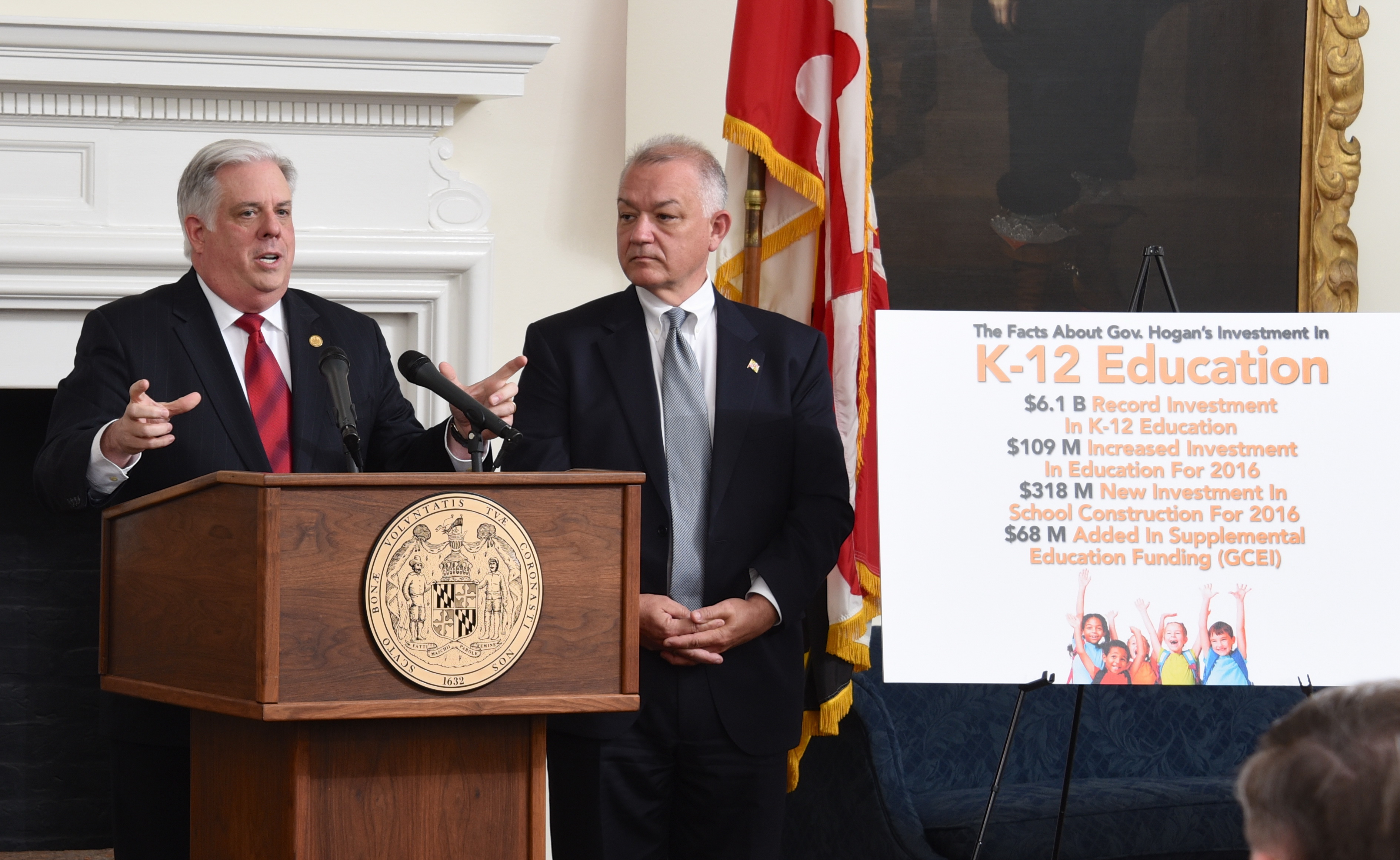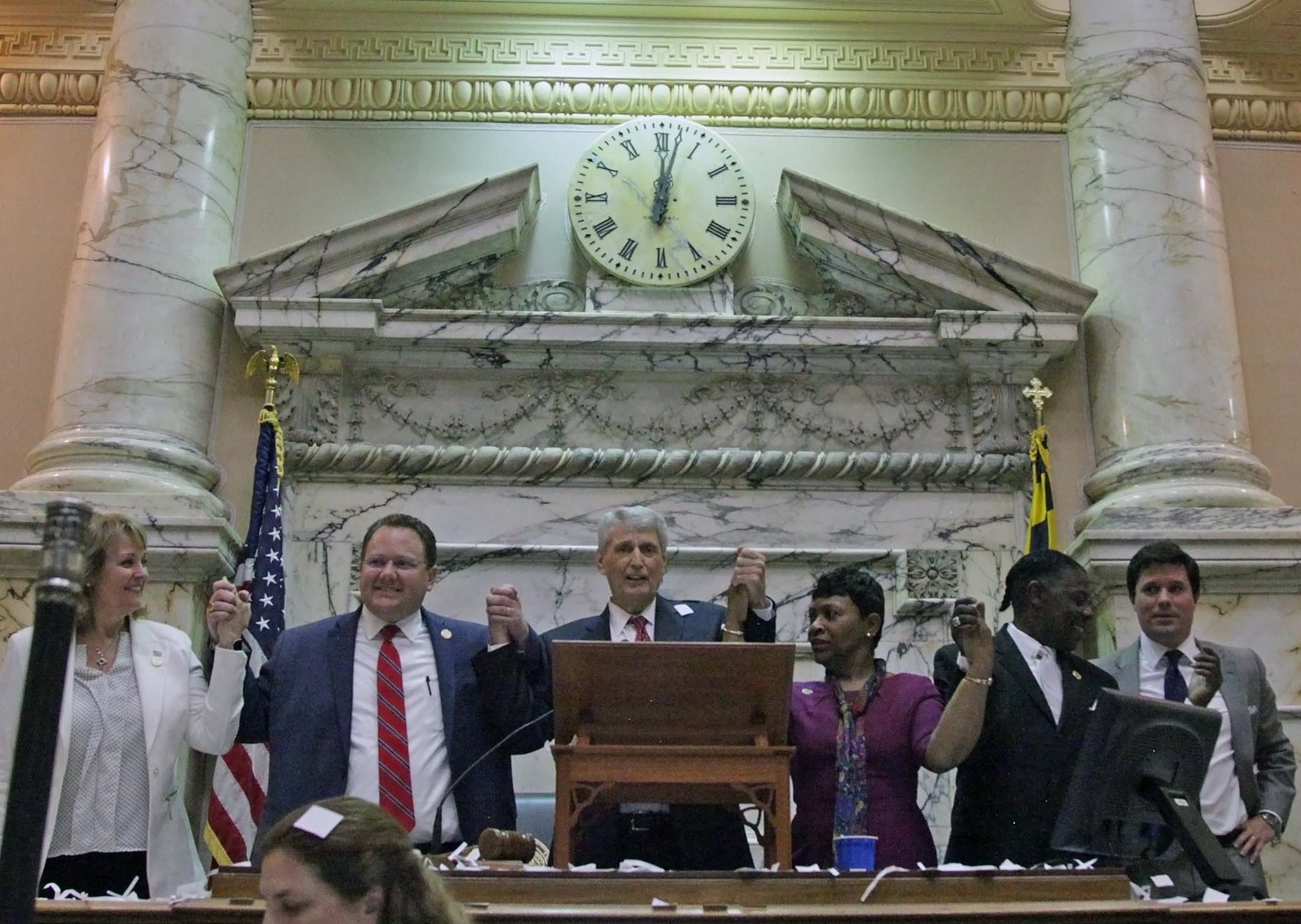By Len Lazarick
Len@MarylandReporter.com
A commission studying Maryland’s campaign finance laws appears likely to recommend raising current limits on campaign contributions, which haven’t been increased in 19 years.
At an Annapolis meeting Monday, the commission took no formal vote on a final recommendation, but seemed to reach a consensus on raising the total amount an individual may contribute to state election campaigns from the current $10,000 to $25,000 during a four-year election cycle. The number was proposed by Del. Jon Cardin, a commission member who chairs the election law subcommittee of the House Ways & Means Committee.
The commission also reached consensus on raising the current limit to any single candidate from $4,000 to at least $5,000 or even $7,000 in any four-year election cycle. Indexing the limits to inflation was also discussed.
“The aggregate amount is a much more meaningful number” than the limit on donation to a single candidate, Cardin said. “Most people are making contributions of significantly smaller amounts over a term.”
Commission member Marty Madden, former Republican leader in the state Senate, said any increase in the limits made little difference unless the commission proposed limiting the contributions from limited liability corporations (LLCs). Every LLC, which real estate developers often create for each project or parcel, are treated as individuals.
This has allowed business owners, particularly commercial developers, to avoid contribution limits by contributing from multiple LLCs under their control.
“We have to look at disclosure at who is behind the LLCs,” Madden said. Currently, these corporations must only list a resident agent, who is often unrelated to the controlling interest behind the LLC.
Attorney Bruce Marcus, the commission chairman, said there is really little distinction in Maryland law between other corporations and LLCs. “There is no reason why they should be treated differently,” Marcus said.
At the start of the meeting, commission member Larry Gibson, a University of Maryland Law School professor and political consultant, said that in the studies that he and his students conducted over the years of the very different campaign finance laws in neighboring Pennsylvania and Virginia, “no one can find any correlation between any system [of controls] and corruption or perception of corruption.”
Virginia, for instance, “doesn’t pretend to have any limits on contributions,” Gibson said.
At its next meeting July 16, the commission plans to discuss a total ban on contributions from business corporations, as in federal elections. Madden pointed out that 21 states currently ban contributions from corporations, but Maryland has long permitted business contributions.
The commission on Monday also discussed banning political contributions from companies doing business with the state, but will take that up again in July.
Also on the agenda for July and another meeting in August are dozens of items that include public financing of campaigns, controls on independent expenditures in support of candidates and new enforcement procedures for violations of campaign laws.






The commission was created pursuant to Joint Res. 1 (JR1) passed May 10, 2011, which authorizes appointment of 17 members; six by the Speaker (House), six by the President (Senate), and five by the Governor.
There are four preambles/stipulations within JR1, and only one gives even the most remote rationale for this commission to exist: Candidates running for office need to spend more time raising campaign cash than in the past, because costs have risen. Sound questionable?
Moreover, JR1 was and is fatally flawed. Most or all of its members have an actual or apparent conflict of interest because they are charged with deciding a matter intrinsically tied to their own interests.
The consensus of these 17 conflicted individuals is (1) to hike by 250% the maximum individual contribution, and (2) raise by 175% the ceiling a candidate can accept.
These increases are patently excessive and plainly at odds with two stipulations within JR1 itself which warns against: (1) impairing competition from those who may wish to be candidates by erecting barriers in the form of high campaign costs and (2) exacerbating the public perception that more campaign money increases the risk of improper influence.
In sum, I question the raisons d’être and makeup of this commission. Further its consensus to date is both self serving and contradictory to strictures within the Joint Resolution.